Unplugged
What a power cut taught me about living offline | 10 reasons and strategies to detox from your device
Last weekend, when I was due to publish my weekly newsletter, our pueblo experienced a nearly five-day power cut.
It was the longest I’ve lived without power in this country, besides the six-day power cut we experienced after the hurricane and postpartum in our homebirth rental in El Tuito. The sudden quietening of information and detox from social media reminded me of all I’ve learned living offline and off-grid in the Jaliscan mountains and how important it is to disconnect from our devices and plug into real-world connection and creativity.
As a forest dweller for the last few years, I have learnt how to return to the basics and get on with things just fine. Our outdoor kitchen is only dependent on fire; we have candles and rechargeable flashlights ready, and I can live for a week on the pit-crotch cold water wash if I have to, thanks to my early days as a backpacker roughing it in India.
In fact, for the first half a year up here, we didn’t have our electric water heater installed in the bathroom and took cold, spring water showers in the late afternoon once the tank on the rooftop had heated a smidge. After that, I’d sit in the driveway in a sliver of sun for an hour, drying my hair and warming myself up. We didn’t have a fridge in the house for longer, only subsisting on vegetables, lentils and dry soya chunks. We ate meat when we went into town, drank our coffee without milk and rarely had leftovers. Everything was fresh-made and consumed in one sitting or hidden in a shaded cupboard in the frying pan if something was left for a snack.
We didn’t buy our beat-up truck for almost a year, first walking up and down the mountain until we got a motorcycle that cut the 8-kilometre, hour-and-a-half walk down to the bus stop on the highway to thirty minutes. We hand-washed our clothes except for blankets and bedsheets and Jaz’s filthy work clothes, which we’d load into a giant backpack I’d wear while sitting on the back of the motorcycle. On the way back up, the backpack would be filled with groceries for the week. Somehow, in the year before we bought our first beat-up Mexican truck, we only crashed a couple of times.
Of all the things I’ve lived without on this mountain, our Starlink is the most challenging one to give up when the electricity goes and sends us back to our old days.
Yet, for the first two and half years I lived in this remote mountain house, I survived without a signal to the outside world, except for the few places we could hike to catch a signal from El Tuito or distant Puerto Vallarta. In those days, we’d connect to the internet a couple of times a week at most, load our phones up with all the latest messages, news stories and emails, and savour each bit of information we had over the following days until we reached a signal point again. At times, it was a tedious existence, but mostly it was incredible to live without all the modern conveniences and discover that I could survive if not thrive.
I regularly wrestle with the woes and virtues of being on and offline, and this last power cut put a few things into perspective. Below, I will share why a digital detox would do you some good and how I am trying to balance my internet usage.
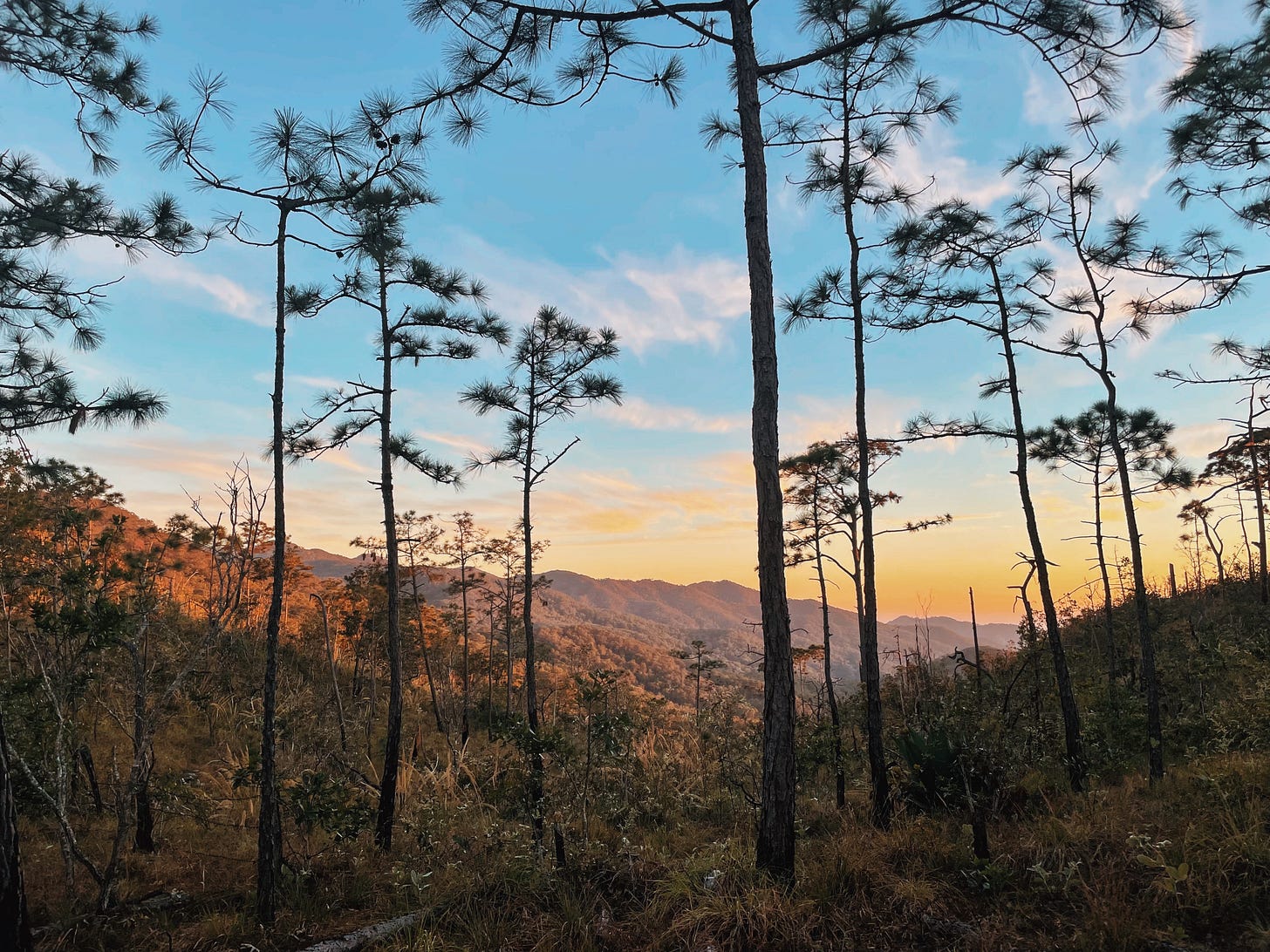
10 reasons to detox from your device
1. You will be more present
There is absolutely no denying that when there is no internet, there is no impulse to pick up my phone, Google something, check my messages, or scroll. I can easily leave it anywhere in the house and don’t transport it from room to room. That leaves me without the hankering, the addictive grasping for some reason to touch my device, and thus, I remain wholly available to the present moment. In this presence, I watch the light change in the forest canopy; I notice the butterfly flit by, and I play with my daughter without the nagging sensation in the back of my mind that there is some other place I could be and something else I could be doing.
2. You will not have FOMO
What you don’t know about can’t bother you. In truth, life only happens in the present moment, exactly where you are, doing exactly what you are doing. Having unlimited windows into other people’s existence creates a desire to be elsewhere and have something else. It will serve you better to focus on making your own life as meaningful and magical as possible instead of coveting what your neighbour has.
3. You will sleep better.
Normally, I’d be watching a show on Netflix or scrolling after I put the baby to bed; instead, during the power cut, I was curled up with my hot water bottle, reading a book by candlelight. Most nights, I was asleep before 9 pm, and since I’m a mama whose life revolves around my baby’s schedule, I was better rested. The strange thing I discovered was that my daughter slept better, too, and didn’t wake up at night as often as usual.
4. You will be more creative.
When we stop scrolling, suddenly, a vacuous chasm opens abundant with time you didn’t even know you had. In that empty space, you can draw, paint, journal, craft, play cards, go for long walks, cook, and have great conversations. When we stop observing the creativity of others, we can plug back into our own and be aware of when the muse shows up with new inspiration. If your face is stuck in your phone, you might just miss her.
5. You will read more.
Like you, I have a stack of unread books on my bookshelf that I always say I don’t have time to read. But when the internet goes down, all that time I spent doing God knows what is replaced with reading. I finally started reading my friend Steve Odom’s memoir, The Awakened Heart, which I purchased a year ago. I feel my brain cells tingling with delight that I am feeding them words and not flashing colours on a screen.
6. You will feel more grateful
It is easy to take our simple lives for granted, especially when we are bombarded with images of influencers suntanning on the edges of infinity pools and ageless celebrities who look better than we do at twice our age (hello, Demi Moore). But when you switch off your device and cut the supply of that messaging, it is much easier to see what is amazing about your life. Your gratitude for the small delights of your humble existence will increase, and you will remember how blessed you are to live your unique life.
7. You will be centred in your own existence.
When we aren’t looking at what others are doing in their Instagram bubbles and comparing our lives to those perfect little squares of fakery, we are more deeply rooted in our own lives. When not mining our existence for content, we live one moment at a time. When we are not taking pictures of our lives to share later, on the phone, or peering into the curated lives of strangers, we are doing us, which centers us in our lives much deeper. By being centred in our existence, we write that book, receive cosmic downloads, and encounter our unique gifts to share with the world.
8. You will be less distracted.
The endless barrage of bite-size videos that refresh with the flick of a thumb destroys our cognitive development, memory, sleep, and attention span. Human life was not designed for this dopamine-inducing information overload of mind-numbing content. The real zombie apocalypse is how we stare blankly into our screens, unable to hear or see anything beyond their flashing, sleek displays. (Also, see number 1.)
9. You will be more social.
Without WhatsApp video chats, phone calls, zooms, and comments on social media, the only human interaction possible is the face-to-face, real-world kind. When the power goes down, suddenly I’m over chatting with the neighbours about the outage, playing cards with Jaz by candlelight instead of zoning out on a show, and seeking out friends in town for a playdate instead of watching their lives on my phone. Social media doesn’t make us social. Real life does. That is where we build the most genuine connections.
10. You will be a better parent.
I have tea parties and music circles with my daughter when I'm not online. I’m there to catch her when she rolls off the edge of the bed, sailing into her woollen carpet and bonking her head. I participate, I show interest, and I’m there to share in her experience and be her fan. Access to the internet is a competitor for her attention that can quickly draw me away if I’m not careful. In those moments when I stare at my screen instead of being next to her, she climbs on a chair and falls or puts something in her mouth that doesn’t belong there.
But is it all bad?
I have yet to come across a convincing argument that spending more time online will improve marriage, make us better parents, or awaken us to our true selves. It's pretty clear that our devices are harming us, but is it all bad?
I first met my current partner through Instagram when he was a follower who left thoughtful comments on my posts for seven years until we met face-to-face. (Read about that here.) Having an online platform has motivated me to write millions of words, many of which are part of poetry collections and short stories for forthcoming books. I’ve kept in touch with wonderful people I met while backpacking and fundraised a water well project for a marginalized community in South India. And, of course, you are here reading my words, which makes me so happy.
I have experienced both the addictive, sparkle-zapping side of being online and the power of its connectivity and motivation for my creativity.
While I don’t feel I need to give it up entirely, and I see its benefits for marketing, audience growth, and content creation, I do see the need to set restrictions and form new habits that take care of my mental health, personal productivity, and attention to what matters.
10 Strategies for detoxing from your device
No bedtime scrolling
Put away your phone after 9 pm
Disable all notifications
Read a book in the morning instead of checking messages
Reduce your device time in front of your kids
Schedule social media usage and offline hours
Unsubscribe, unfollow and delete unused apps
Focus on one task at a time without allowances to quickly “check something” online
Turn on parental controls
Change your phone from colour to greyscale (Click the link for tutorial)
Can you think of anything else?
I’d love to hear if this article resonated with you and your relationship to the internet. Do you need to set boundaries to curb your usage? Can you share something you’ve tried that works? How has the digital world impacted you?
Questions for Journalling | Reflection | Comments
How does being online affect your mood, energy, and mental health?
When did you last go a full day without using your phone or internet?
What activities could replace your digital habits during a detox?
How can you incorporate more offline time into your daily life?
What habits or boundaries do you want to maintain moving forward?



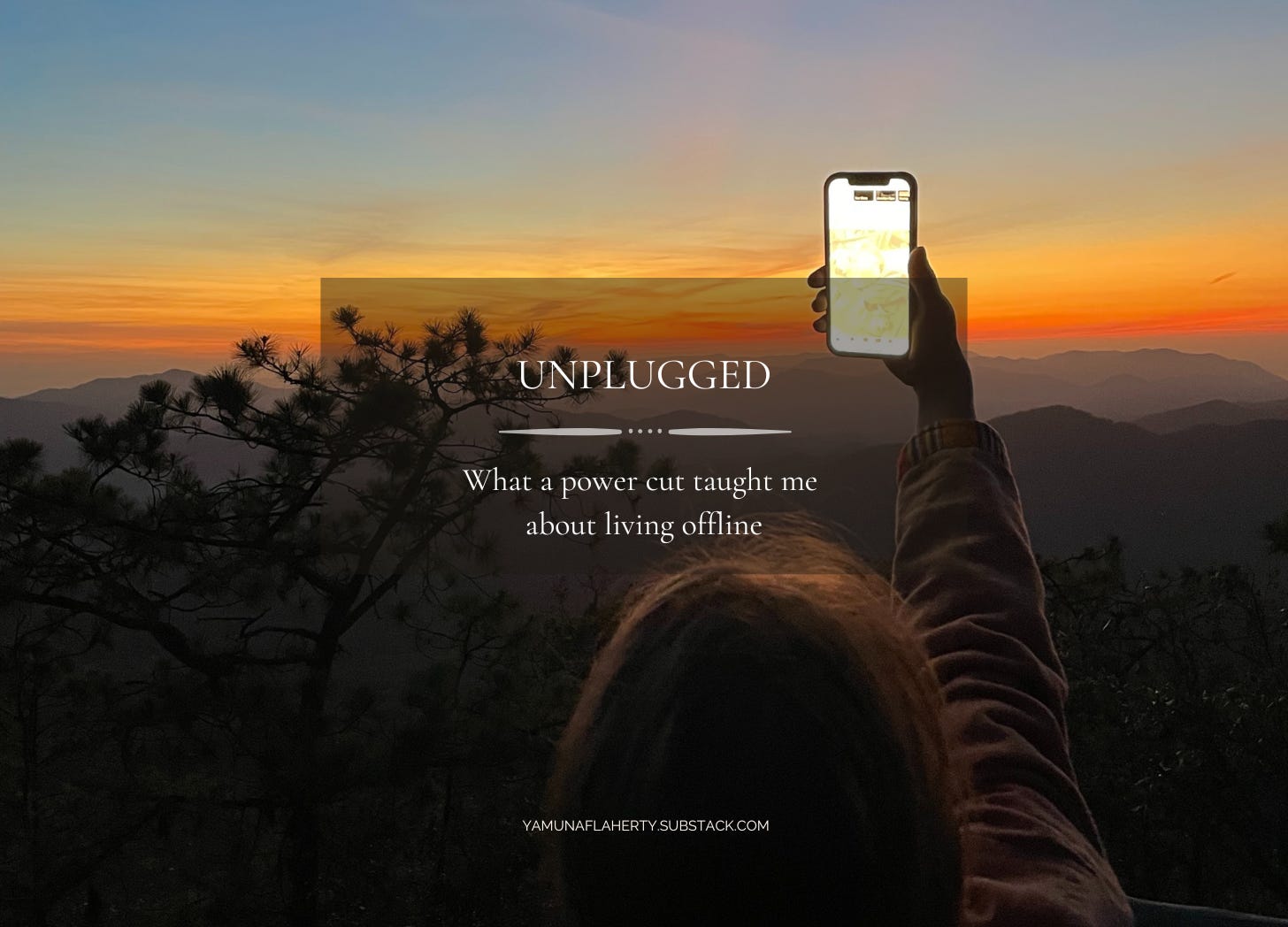

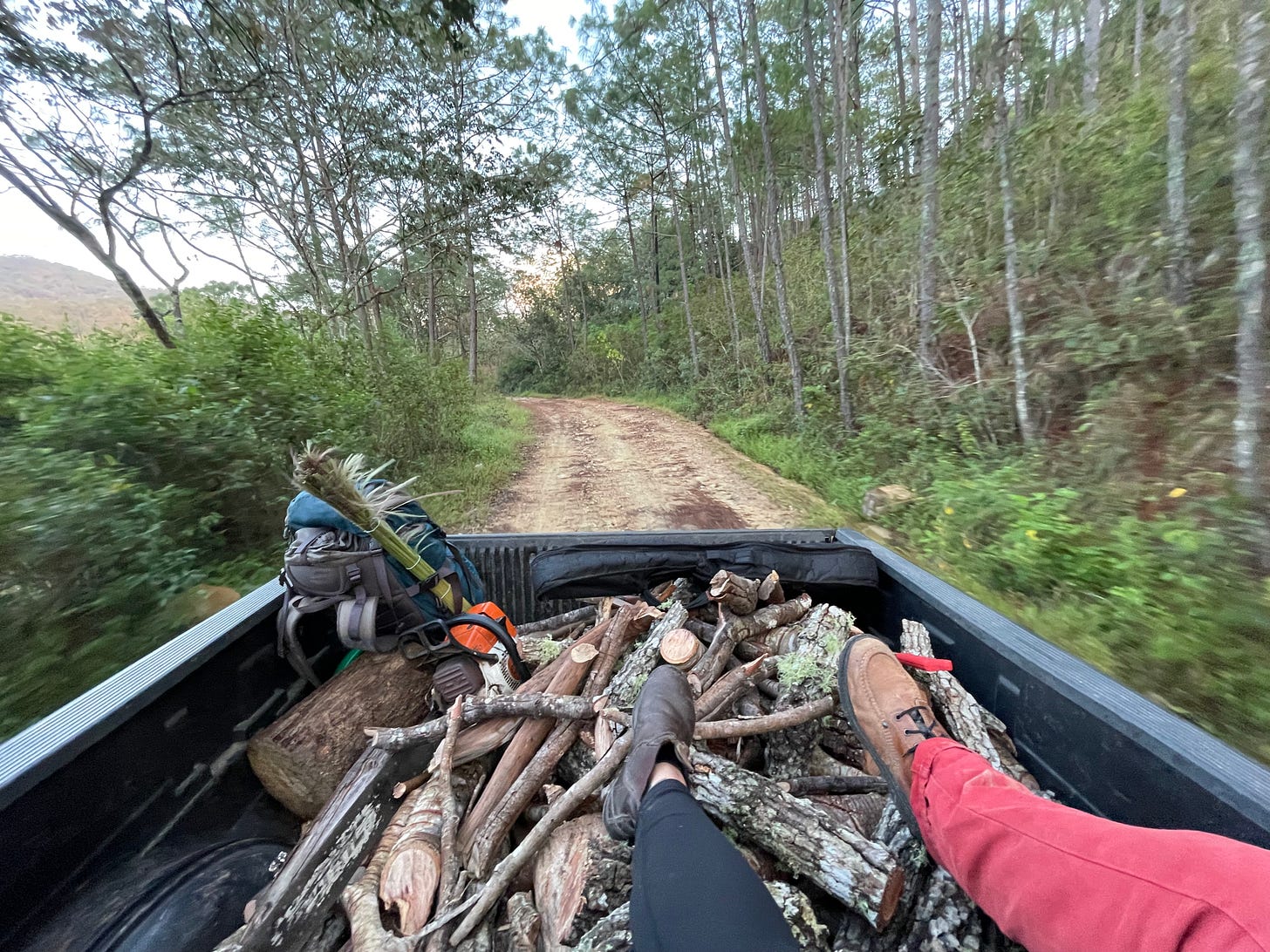
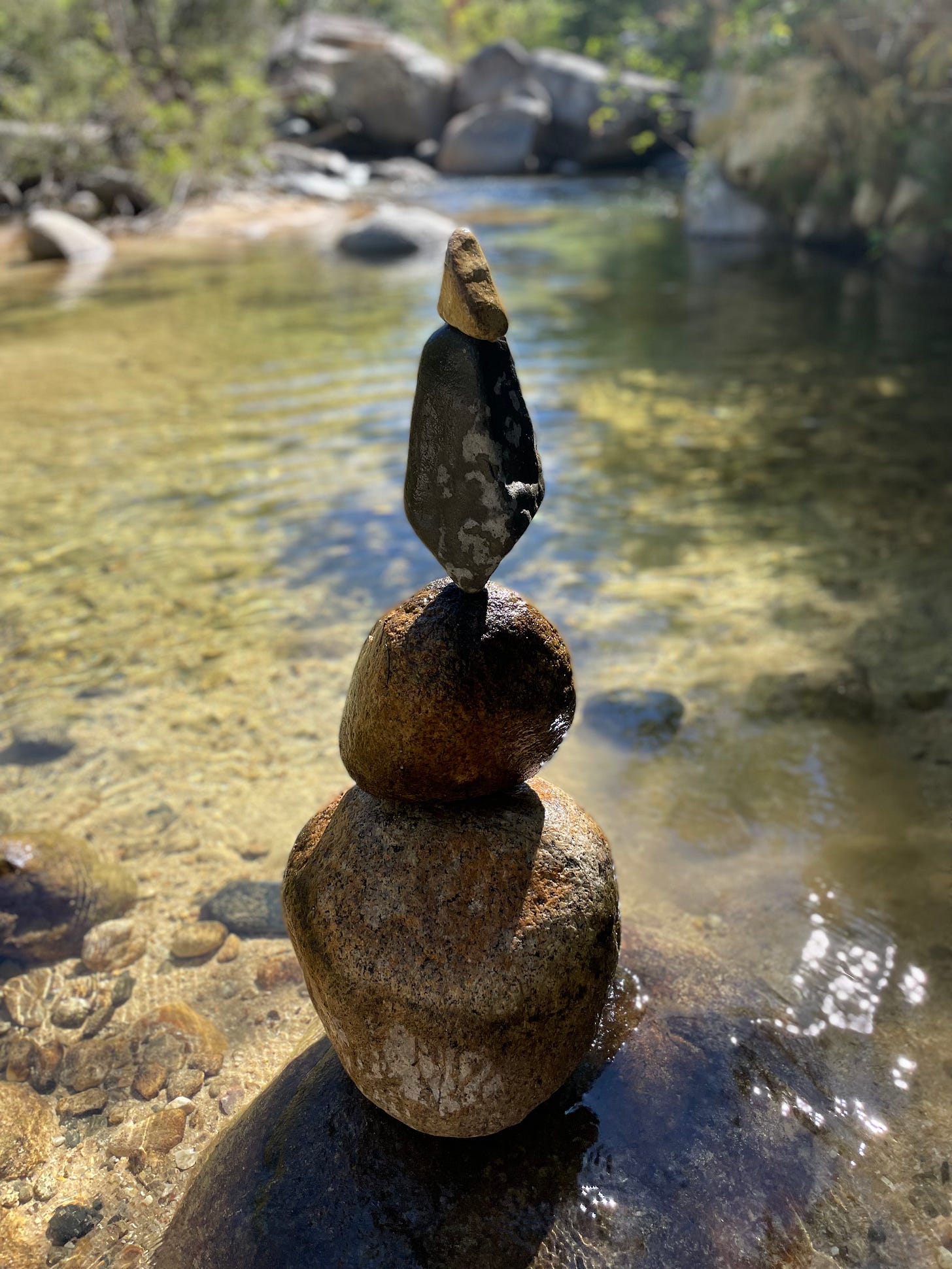
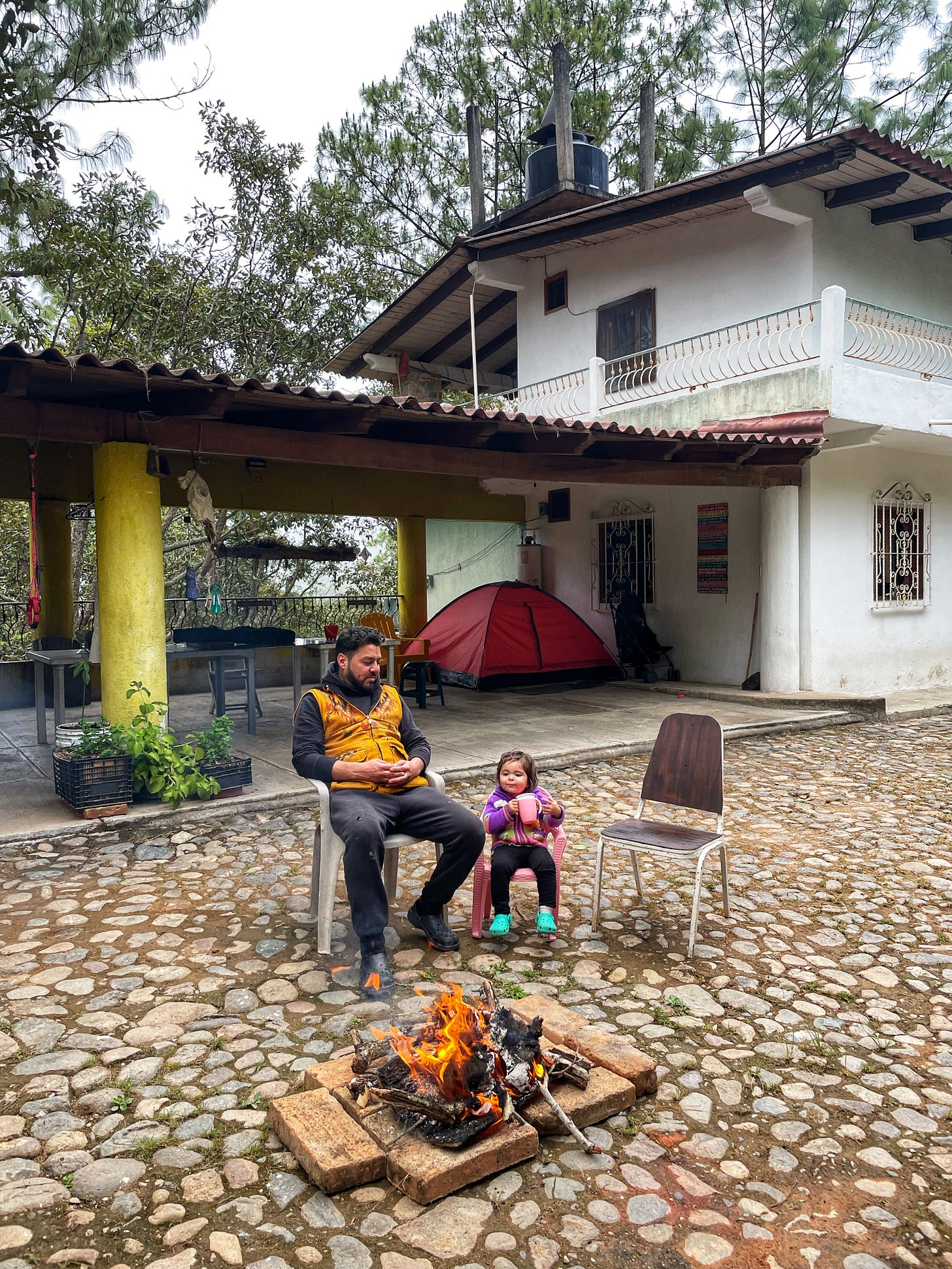

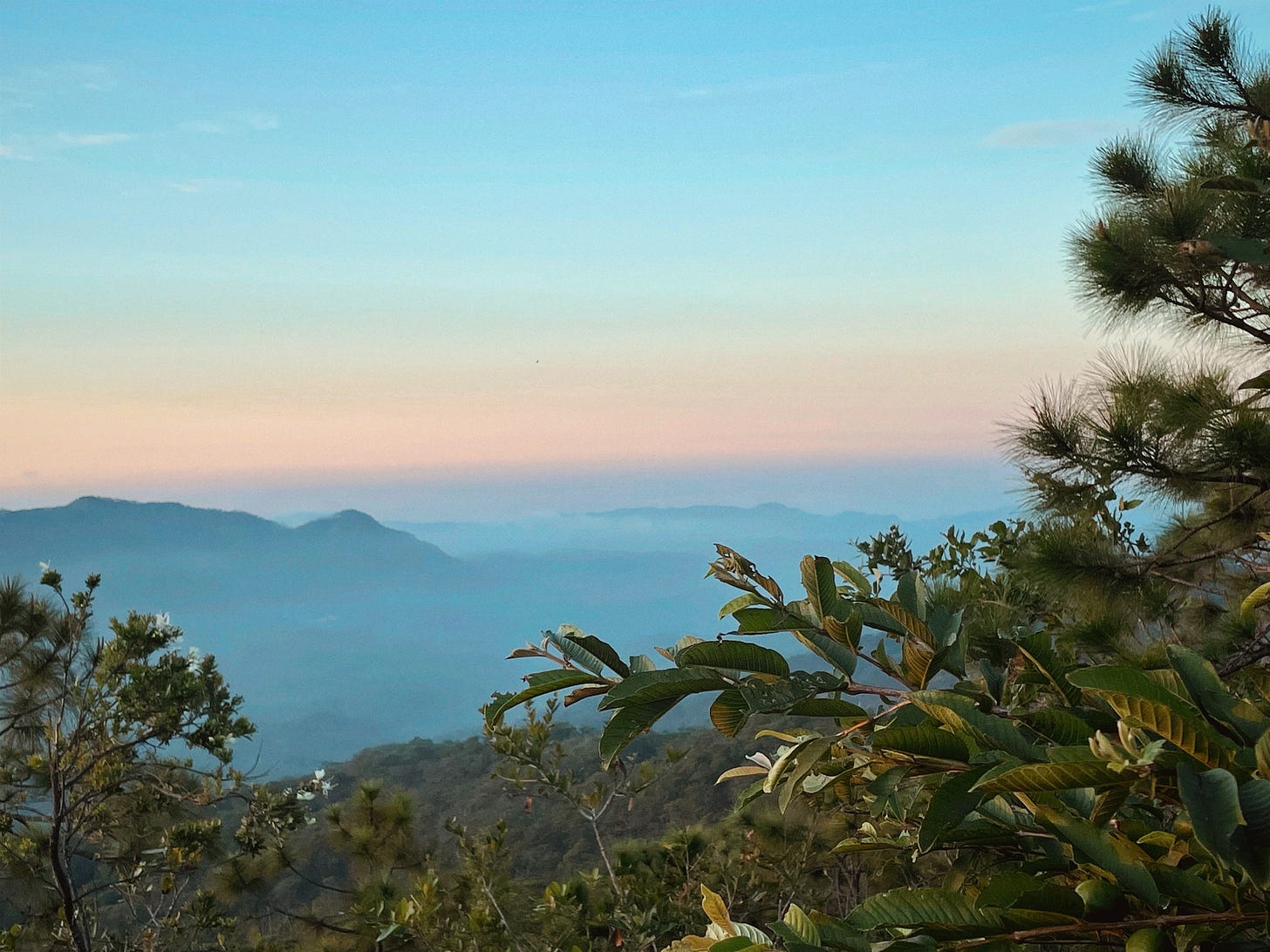
This was so nice and refreshing to read it reminded me of being in the forest for a week at a time... It really does something great to you pulling away from the screens. I'm grateful for the reminder right now to have more breaks. Thank you yamuna for your beautiful writing
Love this. A timely commentary as the US youth struggles with the loss of TikTok. I’m with you. I love my unplugged time… 🩷